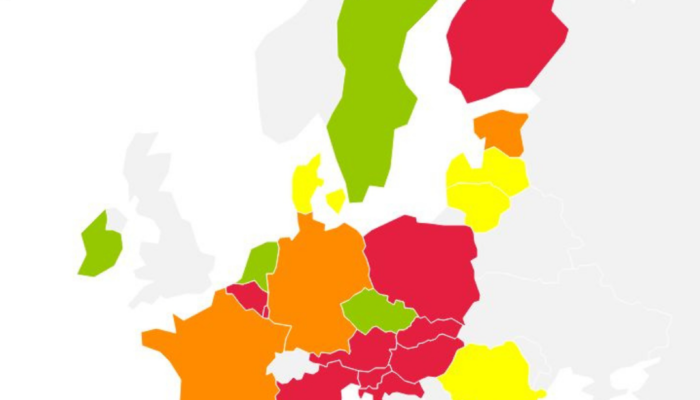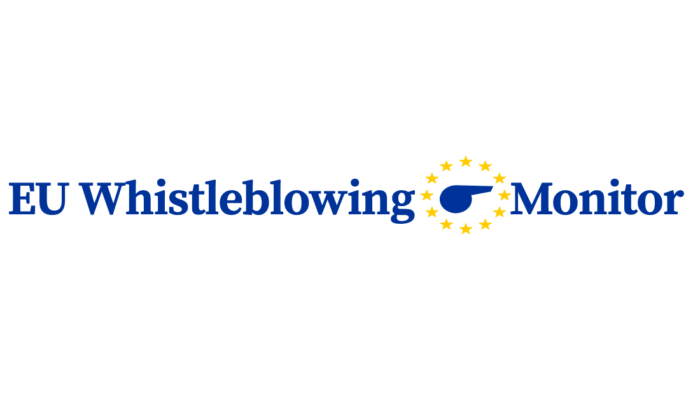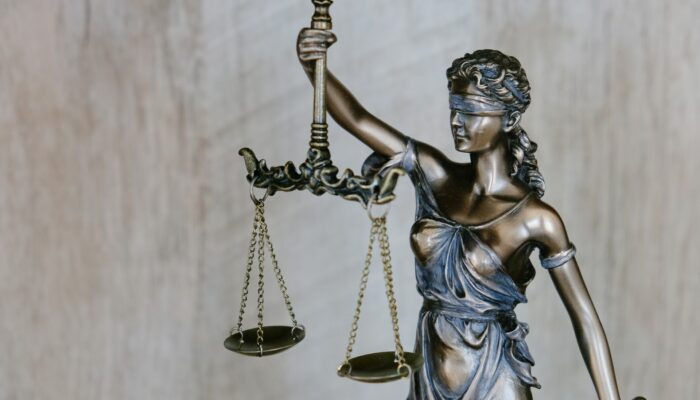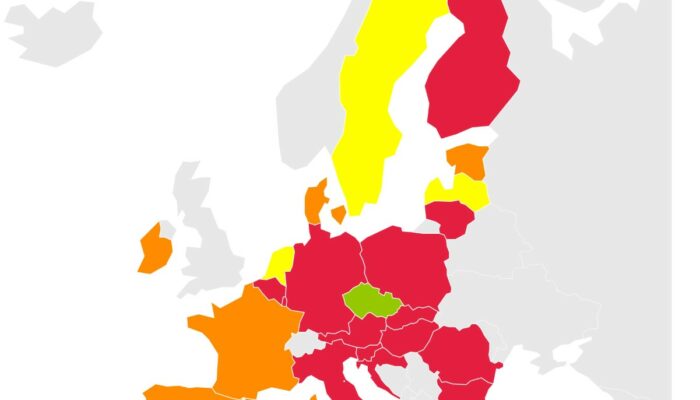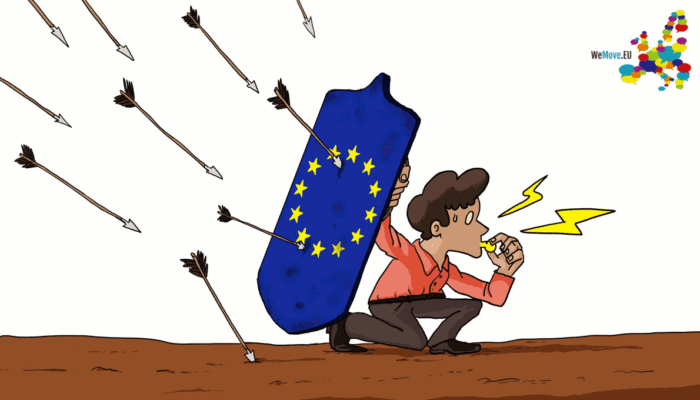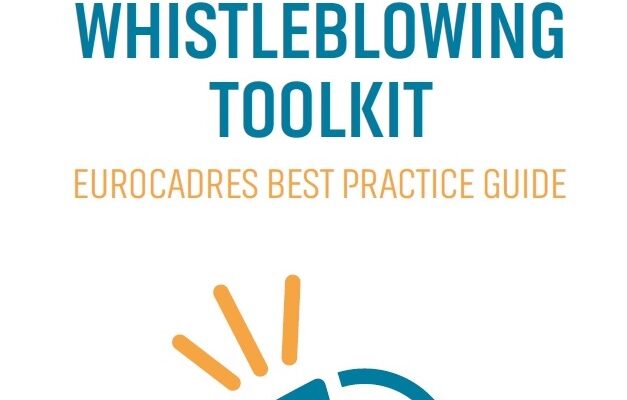State of play
Protection for whistleblowers in Europe is currently a patchwork affair. Some countries, such as Ireland having robust laws in place, while others, such as Cyprus, have practically none. 16 EU member states have specific laws or provisions, and 10 of those adopted their laws or in the past 5 years. Three other countries have at least partial legal protections for whistleblowers.

But the relative novelty of a law is no guarantee of rigour. In the case of Poland, for example, legislative provisions included in a Draft Law on Transparency in Public Life purporting to protect “whistleblowers” caused consternation among many civil society groups. The draft posed a threat to anyone coming forward to report a potential crime to the Polish Prosecutor as the “protection” afforded could be removed arbitrarily at any point by the Prosecutor without any independent legal recourse for the whistleblower. It was in effect a witness control provision rather than effective witness protection, let alone whistleblower protection. The risk to the rule of law in such circumstances is high.
Blueprint for Free Speech’s new report series on whistleblower protection in Europe shows that protections are still low across EU countries. Whistleblowers need stronger, more comprehensive laws – and those laws need to work in practice.
Gaps in the System rates whistleblower protection laws from all EU member countries against nine recognised European and international standards. The 28 EU countries’ total score in meeting the standards was 173 out of 759 points – just 23%.
Ireland, as mentioned above, receives the highest evaluation score (66.7%) in the report. Overall, more than half the EU-member countries now meet at least three of the nine international standards, in part or full. However, with seven countries scoring a zero and eight more rating below 25%, there is still a long way to go.
On 23 April 2018, the long-awaited Commission proposal was presented.
Transparency International called it a bold step in recognising the importance and rights of whistleblowers.
“The European Commission has produced an ambitious proposal, which will need to be strengthened to ensure that whistleblowers, no matter who they are or where they work, will be protected,” said Nicholas Aiossa, of Transparency International EU.
The proposed legislation will give much greater protection for individuals who wish to come forward when they encounter corruption or illegality in the workplace and will provide both public and private sector employers with greater legal certainty around their rights and obligations, said the organisation.
However, the proposal is not without its faults.
The planned “tiered reporting” process means that whistleblowers cannot go to public authorities until they have blown the whistle internally, and may only do so if the internal disclosure has not been followed up. There is a “get-out” clause which aims at covering cases like the Luxleaks case. Those who “could not reasonably be expected to use internal reporting channels in light of the subject-matter of the report” or those who “had reasonable grounds to believe that the use of internal reporting channels could jeopardise the effectiveness of investigative actions by competent authorities” may skip the internal reporting stage.
Another drawback under the proposal, whistleblowers can only file for interim relief if they can provide “reasonable grounds to believe that the detriment [they suffered] was in retaliation for having made the report.” This puts the burden of proof on the whistleblower.
Furthermore, there is no mention of workers’ rights. Trade unions are pushing for adding the right to protection when reporting abuses of workers rights and health and safety. Trade unions active to change the directive also express concern that there is no clear no-regression clause, an article in the directive which would prevent the directive to be used for lowering the protection anywhere. What is in place now is only a text allowing member states to keep or put in place better protection, no ban against using the directive to worsen protection.
Another shortcoming of the proposal which trade unions point to, is that the directive is not clear on that workers have the right to be assisted and represented by a trade union in the internal process. It is a key demand from trade unions to clearly state this right in the directive.
Another oversight is the lack of mention of anonymous reporting which is not mentioned anywhere in the Directive.
The Commission’s promise to produce a whistleblower protection proposal was widely seen as a sweetener to make the adoption of the Trade Secrets Directive more palatable. Trade Secrets Directive focussed on anti-competitive business practices including price-fixing cartels, keeping products off the market or unfairly excluding rivals.
Whistleblowers face huge risks in coming forward, and yet they are essential in holding the powerful to account in both public and private bodies. Speaking truth to power is a dangerous business, but the controversial Trade Secrets Directive made it even more perilous.
The Brussels-based Corporate Europe Observatory (CEO) described it as “resembling a blanket right to corporate secrecy” that “threatens anyone in society who sometimes needs access to companies’ internal information without their consent: consumers, employees, journalists, scientists.”
The Trade Secrets Directive was intended to harmonise EU-wide legislation protect companies against theft or publication of their intellectual property, customer lists, planned innovations or market strategies. Instead it has had a chilling effect on disclosing corruption. Many in the European Parliament were against it, in particular the Greens group.
The general principle is that whistleblowers must act in the public interest. What defines the public interest can be a murky business, and draconian laws like the Polish example above swing the balance of power too far against whistleblowers.
Whistleblowers should be able to report on wrongdoing. The Greens manifesto also says that “alerts should not be limited to purely illegal activities but should also cover other forms of misconduct or wrongdoing.” Furthermore, whistleblowers should not bear the burden of proof: those who disclosure inaccurate information in honest error should still be protected.
Issues such as public health, public finance, violations of human rights, corruption, fraud, discrimination, conflicts of interest and public safety, all deserve protection and should not be at the expense of a company’s desire to make money or a government’s wish to control the populace.
Right now most whistleblowers suffer a great deal as a result of their disclosures: on a micro level those reporting bad behaviour within their companies may face dismissal, demotion or denial of promotion. On a national scale, they may lose their freedom and their homes. Not everyone has the stamina and fortitude to go on the run, which is why we need robust laws to protect those who are trying to protect all of us.
“The European Commission has produced an ambitious proposal, which will need to be strengthened to ensure that whistleblowers, no matter who they are or where they work, will be protected.”
- Nicholas Aiossa, TI EU
MORE ARTICLES
Progress update: Are EU Governments taking whistleblowing protection seriously?
Today, on World Whistleblowing Day 2021 – less than 6 months before the deadline to transpose the Directive – we highlight key developments in EU countries since the publication of the report.
New civil society monitor on the EU Whistleblowing Directive
The partnership of Eurocadres, the Whistleblowing International Network (WIN) and Transparency International EU is delighted to announce the development and launch of EU Whistleblowing Monitor, a new online platform to monitor transposition and implementation of the EU Directive on Whistleblowing (2019/1937) across Europe.
EU whistleblowing provisions need adjustments in member states
Seven months remains for EU member states to transpose the whistleblower directive into national legislation.
Can transposing the Whistleblower Protection Directive be done on time? Maybe, but not at the cost of transparency and inclusiveness
EU governments were given two years to bring their national whistleblowing frameworks in line with the EU Directive on Whistleblower Protection.
Are EU Countries taking whistleblower protection seriously?
Transposition of the Whistleblower Protection Directive is a chance to ensure that people can expose abuses safely across the European Union – but EU nations might be letting the opportunity pass us all by.
EU Whistleblowing Meter monitors transposition process
The EU Whistleblowing Meter tracks the progress of transposition in each country.
Half a decade of whistleblower directive advocacy
Professor Wim Vandekerckhove from University of Greenwich has analysed the work of the platform in reaching a directive proposal on the protection of whistleblowers.
EVENT – Call to action: Whistleblower protection across the EU, 23 February
EVENT – 23 February, 14:00 – 15:30 (CET)
Best practice guide on whistleblowing for trade unions
What should be the role of trade unions in whistleblowing? Which internal arrangements, should be in place to establish a culture which promotes whistleblowing?
EU Whistleblowing Meter Launched to Monitor Transposition of EU Directive on Whistleblowing
On World Whistleblowing Day, 23 June, the Whistleblowing International Network along with its many partners and colleagues across Europe are launching the EU Whistleblowing Meter

